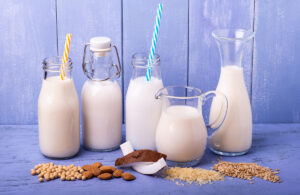
Article
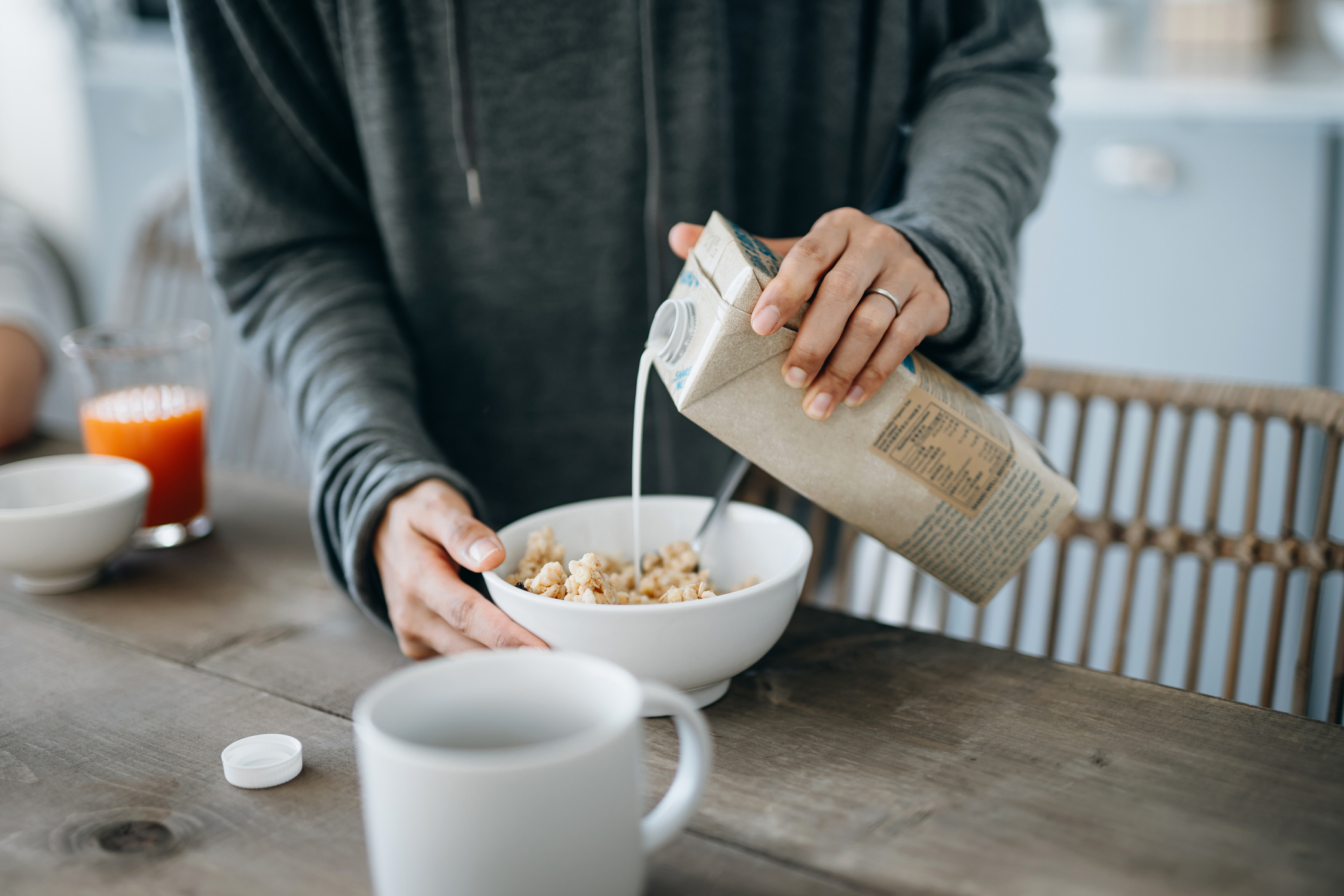
A whopping 40% of Australian households now have plant-based milk in the fridge, and the industry is booming.
The Australian market is seeing a massive outpouring of love for plant-based milks, with people increasingly making the switch for health, environmental, and ethical reasons.
Such is the level of demand that major plant-based milk brand, Vitasoy Australia, forecasted 2023 to be its biggest year yet, producing around 70 million litres of plant-based milk that year – including soy, almond, oat, rice, and coconut milk – on top of a popular new line of oat and soy-based yoghurts.
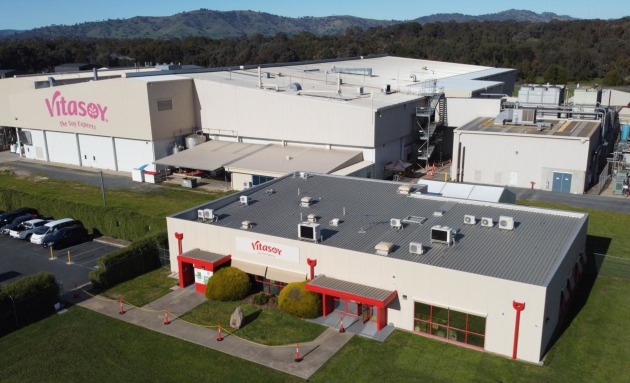
Vitasoy Australia chief executive, David Tyack, says the growth in the plant-based milk market shows no sign of slowing.
“In the past 10 years, there hasn’t been a contraction in the market. [Plant-based milk] has gone from the hippy alternative sold in health food shops to a mainstream product.”
In fact, nearly half of Australian households now have a carton of plant-based milk in the fridge!
For the past five years, Vitasoy’s most popular product has been almond milk – however, following current trends, Tyack says we can expect oat milk to skyrocket to the number one spot:
“Oat [milk] has gone absolutely ballistic in the past four years. It’s the most sustainable crop in the plant-based milk game … It has quite a neutral taste so it’s a good gateway jump from dairy.”
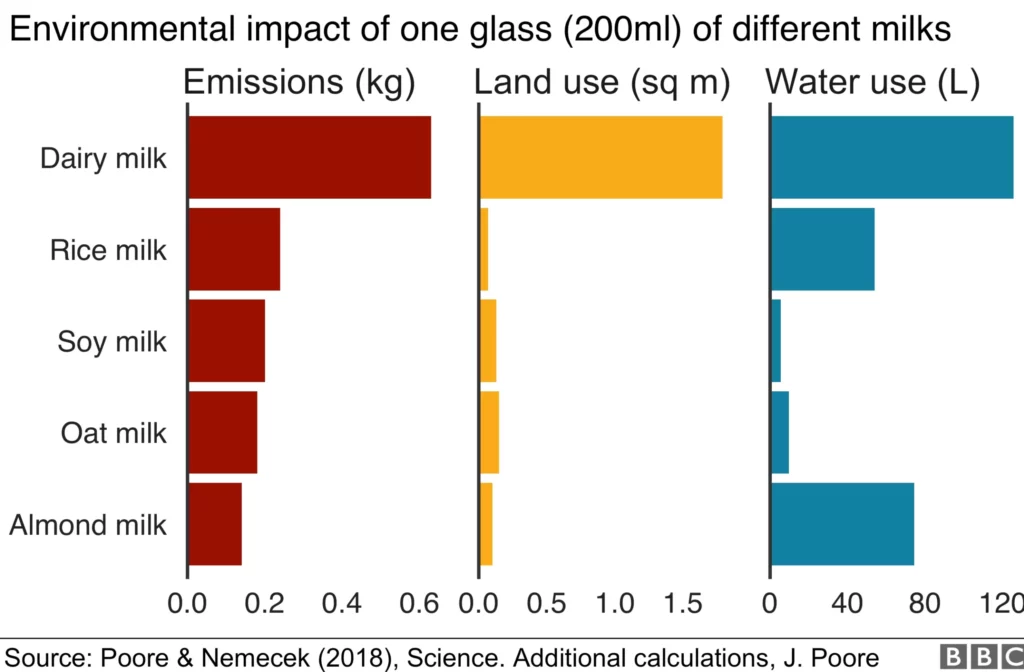
According to a University of Oxford study, milk from cows uses ten times as much land as oat milk, and produces three times more greenhouse gas emissions than any other plant milk.
In our opinion (and in the opinions of pro baristas) oat milk also wins out in terms of being the best companion to coffee – although soy, coconut, almond, and other varieties each have their strengths. (Ever tried macadamia or hazelnut milk? Talk about making your morning cuppa a rich experience!)
If you’re thinking of joining the growing number of Aussies choosing dairy-free, check out our guide to the plant-based milk section for how to choose the perfect plant-based milk for any occasion.
You can also browse our shopping guide for more dairy-free product recommendations. But you can’t really go wrong – it all boils down to personal preference!
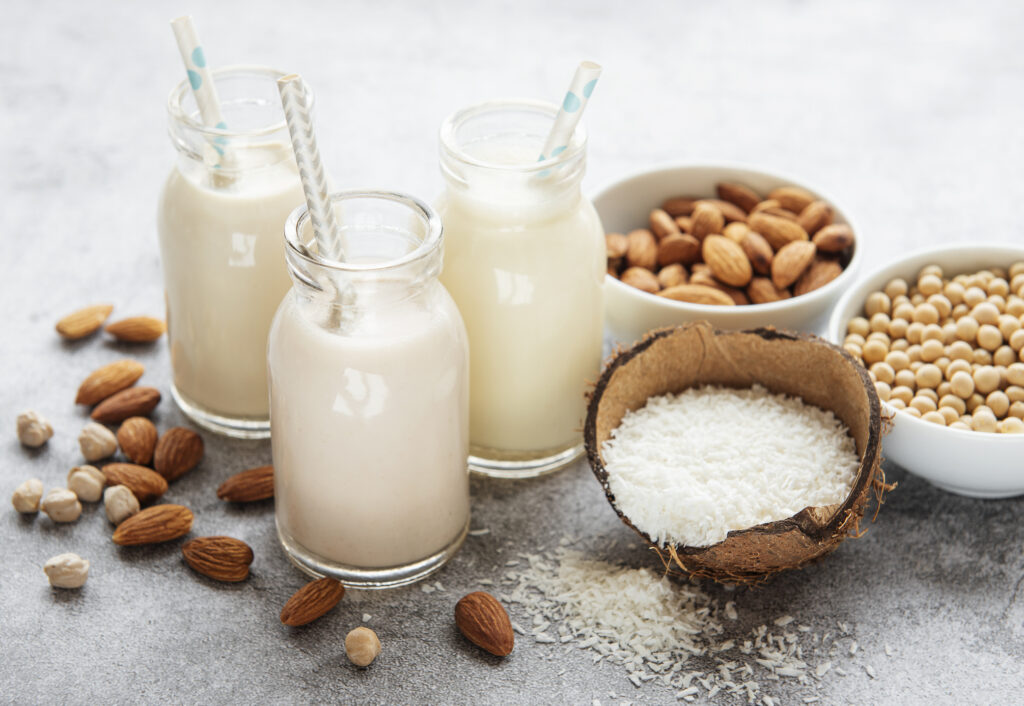
Whether they’re made from nuts, beans, or seeds, plant-based milks are not just gentler on the environment and kinder to cows. They’re also rich in vitamins and minerals, have a healthy combination of fats, and – unlike cow’s milk – contain no cholesterol.
Many dairy-free milks on the market are also fortified with key nutrients such as calcium, vitamin B12, iodine, and vitamin D to support optimal health.
With such a wide spectrum of benefits, it’s little wonder we’re seeing this uptake of dairy-free alternatives across the country! When we choose plant-based milk, the glass is always half-full. ![]()
Keen to learn more about plant-based sources of calcium? Head here for some easy dairy-free nutrition tips.

Maggie’s passion for fresh, local produce began in the 90s when she first harvested the oranges in her backyard for a glass of fresh-squeezed Florida orange juice — though her Dad may remember the details of labour a little differently. Now she adds berries to her chocolate and sneaks pumpkin into brownies so she can confidently and incorrectly refer to them as health foods.